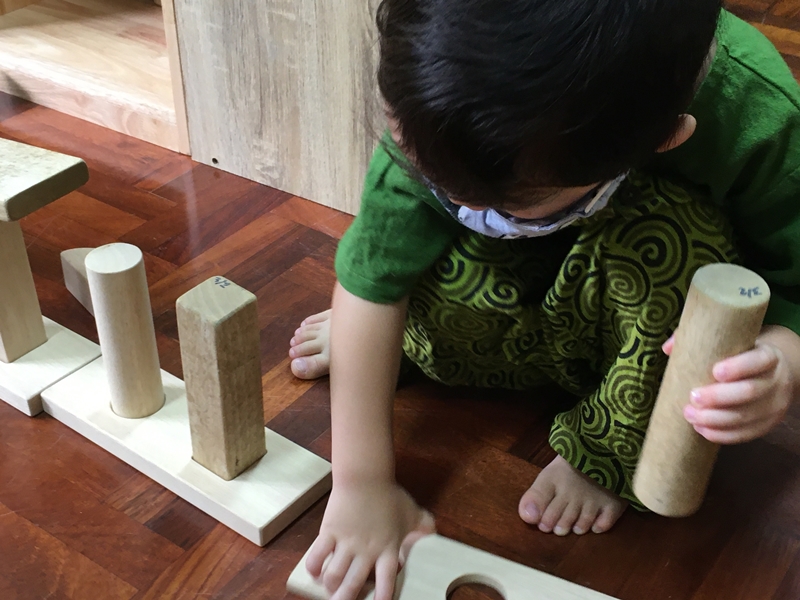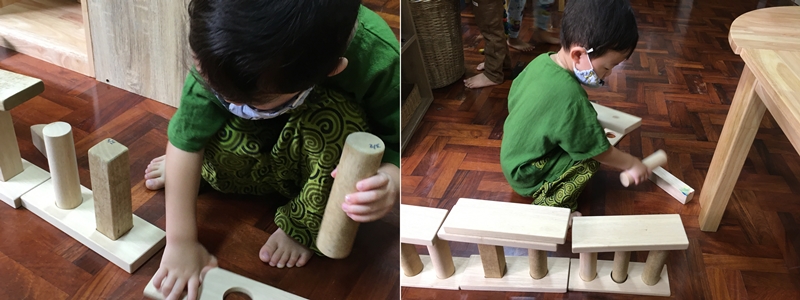
Learning by Living: The Importance of Free Play
One of the littlest boys shifts from his wandering self into his “I can build something” mode, until the blocks form a train. His persistence grows as the train grows longer too. He says, “Ble…” with wide eyes of pride, knowing there must be a word (perhaps “blocks”) associated with the thing he has built. In the relaxed, unstructured free play atmosphere or maybe within the building process itself, he tries out a new word though usually he is quiet. It’s not clear yet what the word is, but he has tried. An observing teacher helps him put words to his actions, “What a nice train you have built.” He steps back, smiling broadly, admiring his own creation, and seeming happy that the person next to him has recognized it too.
The children feel no pressure to use English until they are ready, but they may start to notice when that their fledgling words help them communicate or express something that is meaningful to them. They use more English they are ready and feel a need, step by step.

Students are learning to take initiative and to try new things without being told. Free play is an important gateway for self-management, along with learning to be part of a community and helping others too.

